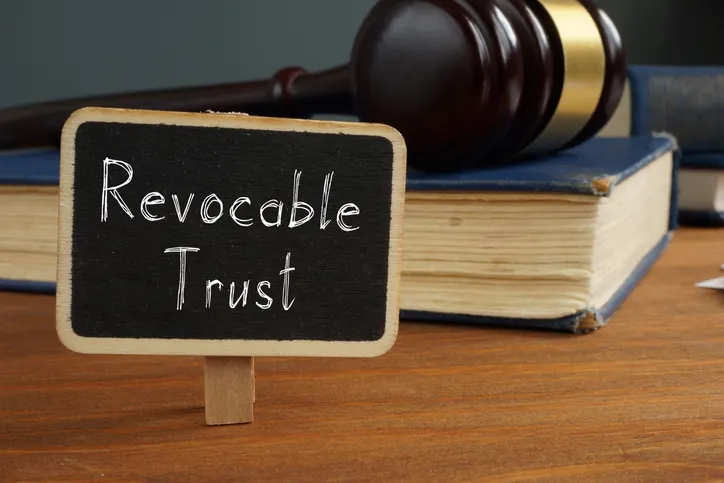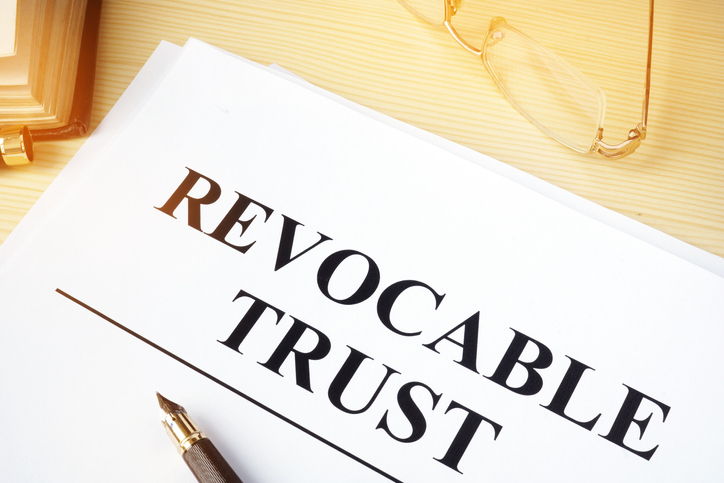

Revocable trusts, otherwise known as “living trusts,” do not protect your assets from creditors. In fact, they are subject to collections actions and lawsuits, and they are included when third parties evaluate your personal assets. We’ll discuss how it works.
Estate planning is a complex process. Find a financial advisor who can help you today.
There are two main types of trusts that individuals and estate planners might establish. The first is known as a revocable, or “living,” trust. The second is an irrevocable trust. While these are not the only forms of trusts, in fact there are a great many, the overwhelming majority fall under one of these two categories.
With a revocable trust, you are typically both the founder and the trustee. This means that you both create the trust and manage its assets and operations. You also have full access to the trust’s terms, beneficiaries and assets at all times. You can change how the trust operates, who benefits from it and even dissolve the trust at will. In addition, you can also take assets back out of the trust as you see fit.
This is by contrast with an irrevocable trust, in which you can do none of this. Where a revocable trust is properly considered a legal entity that exists as an extension of your financial and estate planning, an irrevocable trust is an entirely independent legal entity. Once it has been created you can neither change the terms of the trust nor access its assets.
Revocable trusts are generally used as a form of estate planning. Since this is a legal entity, the trust survives your death. It can then distribute its assets to your heirs without them having to go through the process of probate.
A revocable trust is also useful in case you become incapacitated or otherwise unable to manage your own affairs. For example, if you are a soldier on deployment or are placed in a medical coma.

The answer is yes. A revocable trust is extremely useful as a financial planning tool. Keeping access to the trust’s terms and assets lets you update it as necessary over the course of your life. However, this level of access also makes you the effective owner of the trust and its assets.
This means that courts and creditors can fully access the contents of a revocable trust that you form because its assets are indistinguishable from your own. If you owe money, any assets that you hold in a revocable trust will be considered part of your net worth.
Creditors can seize these assets through collections actions. And courts can order you to pay debts based on what’s in the trust. They are even considered part of your total assets during a bankruptcy proceeding. In short, a revocable trust does not protect assets from third parties.
The reason for this is an issue that comes up frequently in the law. In finance, it’s often known as “commingling assets.” In corporate law, it’s known as “the corporate veil” and in employment, it’s called “misclassification.”
In all cases, the theory remains the same. When someone has full control over an entity and can access that entity’s assets at will, then there is no legal distinction between them. If someone uses their small business as a piggy bank, then you can sue them as well as the business for a cause of action. If a company has full control over one of its subsidiaries, then it is also on the hook for that subsidiary’s debts.
The same is true when it comes to revocable trusts.
Because you control the trust and can withdraw assets at will, the law considers you an effective owner of those assets. You can put money in, take money out, spend money freely, sell the property as you see fit and shut down the trust entirely and take all the assets back. You even pay taxes on all income the trust generates. For all practical purposes, you are the owner of these assets. This is true even though the trust is a separate legal entity.
Another way to think about it is from the reverse position. If a revocable trust did protect assets from creditors, any debtor could easily hide their money from third parties. You could go into debt, move all your assets into a trust, default on those debts, then dissolve the trust and claim your money back. That wouldn’t work, and it’s why courts don’t allow it.
While the details are beyond the scope of this article, it’s worth noting that you can protect assets from third parties through the use of some irrevocable trusts. An irrevocable trust is an entirely separate legal entity from its creator. You lose control of any assets that you put into it, subject to the terms of the trust. But those assets are then legally considered no longer yours.
This depends entirely on the jurisdiction and the nature of the trust itself given state laws vary. Some trusts will not work for protecting assets, particularly not if you have named yourself as a beneficiary. Some jurisdictions also don’t recognize this protection at all. However, it is a potentially viable option under the right circumstances. But if the court determines you moved your assets around to keep them away from creditors, it would be considered fraud.

A revocable trust does not protect your assets from courts, creditors or other third parties. Since you maintain control over the assets in this trust they are still considered yours and it can be freely seized to pay your debts. However, there are some irrevocable trusts that do protect assets from third parties and the level of protection depends on the state laws where you and/or your assets reside.
Photo credit: ©iStock.com/Andrii Dodonov, ©iStock.com/designer491, ©iStock.com/Wasan Tita
Eric ReedEric Reed is a freelance journalist who specializes in economics, policy and global issues, with substantial coverage of finance and personal finance. He has contributed to outlets including The Street, CNBC, Glassdoor and Consumer Reports. Eric’s work focuses on the human impact of abstract issues, emphasizing analytical journalism that helps readers more fully understand their world and their money. He has reported from more than a dozen countries, with datelines that include Sao Paolo, Brazil; Phnom Penh, Cambodia; and Athens, Greece. A former attorney, before becoming a journalist Eric worked in securities litigation and white collar criminal defense with a pro bono specialty in human trafficking issues. He graduated from the University of Michigan Law School and can be found any given Saturday in the fall cheering on his Wolverines.
Read More About Estate Planning



More from SmartAsset
SmartAsset Advisors, LLC ("SmartAsset"), a wholly owned subsidiary of Financial Insight Technology, is registered with the U.S. Securities and Exchange Commission as an investment adviser. SmartAsset's services are limited to referring users to third party advisers registered or chartered as fiduciaries ("Adviser(s)") with a regulatory body in the United States that have elected to participate in our matching platform based on information gathered from users through our online questionnaire. SmartAsset receives compensation from Advisers for our services. SmartAsset does not review the ongoing performance of any Adviser, participate in the management of any user's account by an Adviser or provide advice regarding specific investments.
We do not manage client funds or hold custody of assets, we help users connect with relevant financial advisors.
This is not an offer to buy or sell any security or interest. All investing involves risk, including loss of principal. Working with an adviser may come with potential downsides such as payment of fees (which will reduce returns). There are no guarantees that working with an adviser will yield positive returns. The existence of a fiduciary duty does not prevent the rise of potential conflicts of interest.